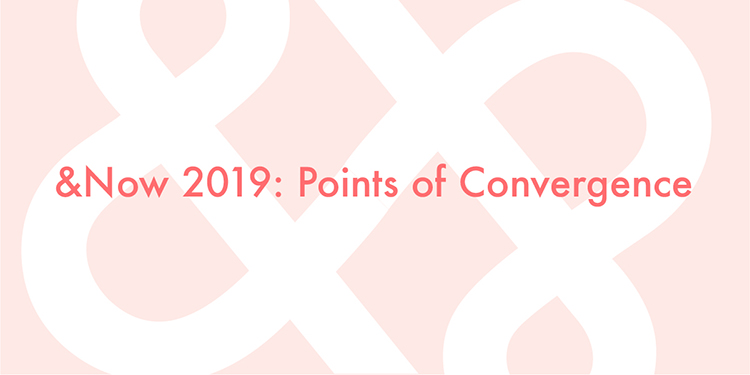And now, this fall brings the &Now Festival to Northwest lovers of experimental literature

The weekend of September 19th, people from around the world will be gathering at the University of Washington in Bothell for the &Now Festival, a biannual celebration of experimental literature. The website for &Now says the festival encourages "linguistic and genre transgressions," including "interdisciplinary explorations and conversations with past, present, or future literary concerns and movements."
Amaranth Borsuk, the Associate Director of the MFA in Creative Writing and Poetics at UW Bothell, has been attending &Now for a decade, following the biannual celebration from Buffalo to Paris and Cal Arts. At its most basic foundation, she says, &Now is "a group of people that reunite on a regular basis to talk about the most pressing questions in experimental writing."
An accomplished poet herself, Borsuk immediately took to &Now because it "offers the chance to get really close to the kinds of writers that you admire." The festival "really feels like a community," rather than the performative fishbowls that other literary festivals tend to offer.
Borsuk admits that she wanted to bring &Now to Bothell and the Seattle area "selfishly" as a fan. But she's also excited for her MFA students to enjoy such close contact with some of the most important writers in the field today. And she believe it's a great opportunity for the region to gain some much-needed recognition: "Although there is a lot of energy and activity around writing and the arts and experimentation here, it can feel like we're a little off the beaten path," Borsuk explains.
This fall's festival theme is "Points of Convergence." Borsuk explains that it's a timely mission statement for "artists and writers who are looking for ways of finding common ground at a particularly disjunctive moment in the literary world."
This year's &Now features three keynote speakers "who do work across medium and genre and who can speak to some of those larger issues," Borsuk explains. They all are working at the convergence between disciplines. LaTasha N. Nevada Diggs, the opening night speaker, "writes for the page but also does sound performance," Borsuk says. Friday night features Barbara Browning, "whose fiction really dovetails closely with her own autobiography and blurs the line between art and life" using multimedia components including videos and online installations. The final keynote, Nathaniel Mackey, is "a poet whose work is strongly connected to music and jazz and who has a really deep history of thinking about the ways that race and poetry are imbricated."
Local writers from Seattle (including Anastacia-Renee and representatives from the Seattle Poetics LAB) and Portland will be a part of the full complement of panels, which often include more performance and process conversation than your traditional literary panel discussion. "The panels will not be laced with academic jargon and will by and large not be about analyzing works of literature," Borsuk says, calling &Now more "accessible" than most literary conferences she's attended.
For all four days of the festival, too, there will be a book fair operated by Open Books featuring all the &Now participants. Panels that have been accepted for the conference include a discussion of Asian American speculative poets, a panel titled "Horrors of the Family Romance" with panelists including Rebecca Brown and Brian Evenson, a survey of weird fiction, and a discussion of the surveillance state as it pertains to writing. Other convergences include video and poetry, reality and digital presentations of reality, porpoises and lectures, and futurism through poetry. Borsuk says the full schedule will be online soon. Tickets are available now, and day passes range from $10 to $20.
As a teacher who is deeply embedded in Northwest literature, Borsuk feels that the Points of Convergence theme is a vital one for this place and time. "The concern about forging connection in a moment of political and cultural schism is on the minds of writers here," she says. "Some people are doing that work already in their writing, and others are interested in figuring out how to do that work in their writing." For those who are thinking deeply about these issues, she says, "having the chance to sit in on and be part of these conversations will be enlightening for all of us."